Leadership and Management for Service Industries: A Review
VerifiedAdded on 2023/01/23
|13
|675
|73
Report
AI Summary
This report provides an overview of leadership and management in the service industry, beginning with an introduction to classical management theory and its impact on employee commitment. It then explores the roles of leaders, including decision-making, influencing team members, and acting as change agents. The report details different leadership styles such as autocratic and participative approaches. It reviews various management and leadership styles and concludes by emphasizing the importance of effective leadership and management for organizational success within the service sector, referencing relevant academic sources.
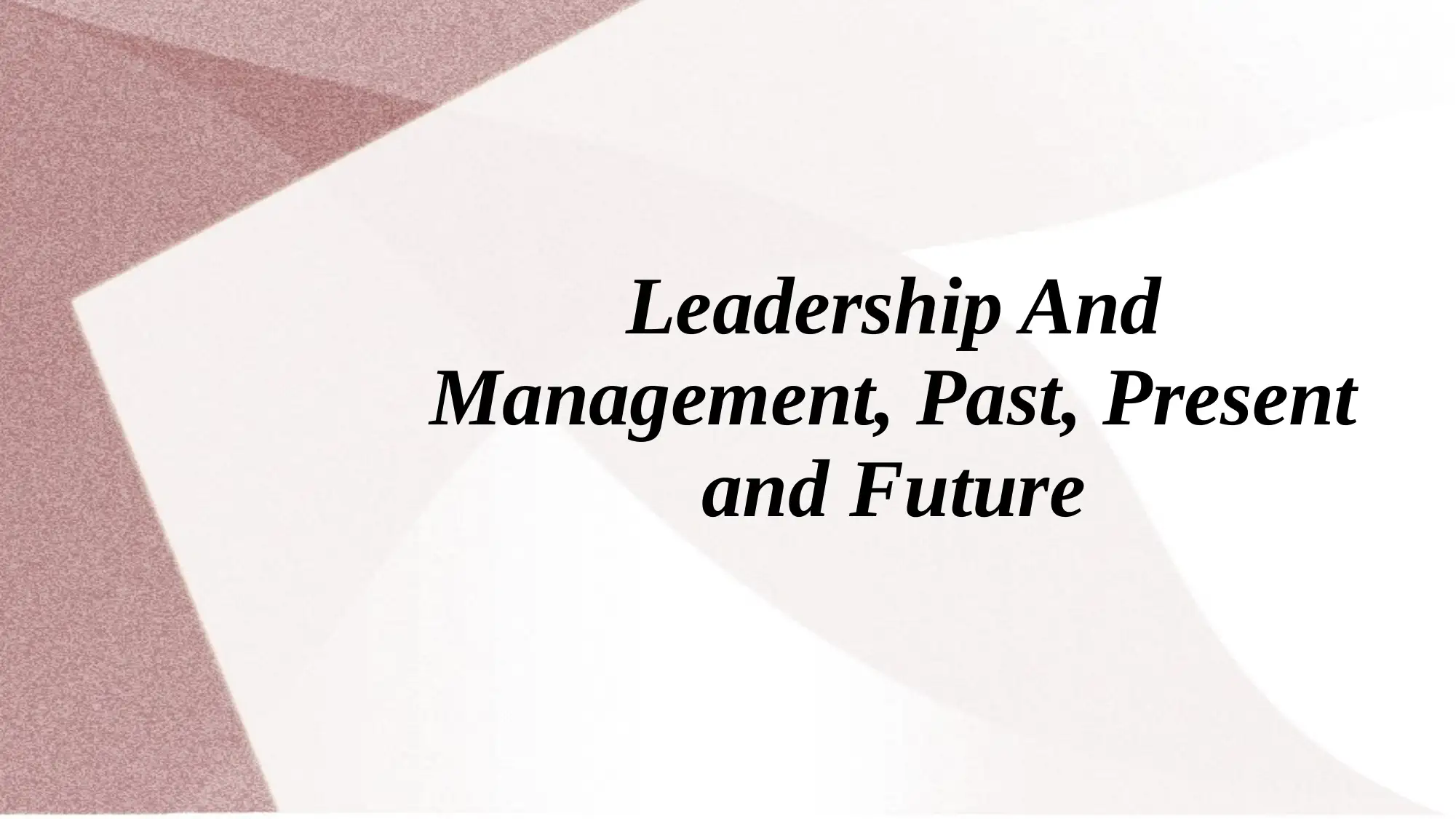
Leadership And
Management, Past, Present
and Future
Management, Past, Present
and Future
Paraphrase This Document
Need a fresh take? Get an instant paraphrase of this document with our AI Paraphraser
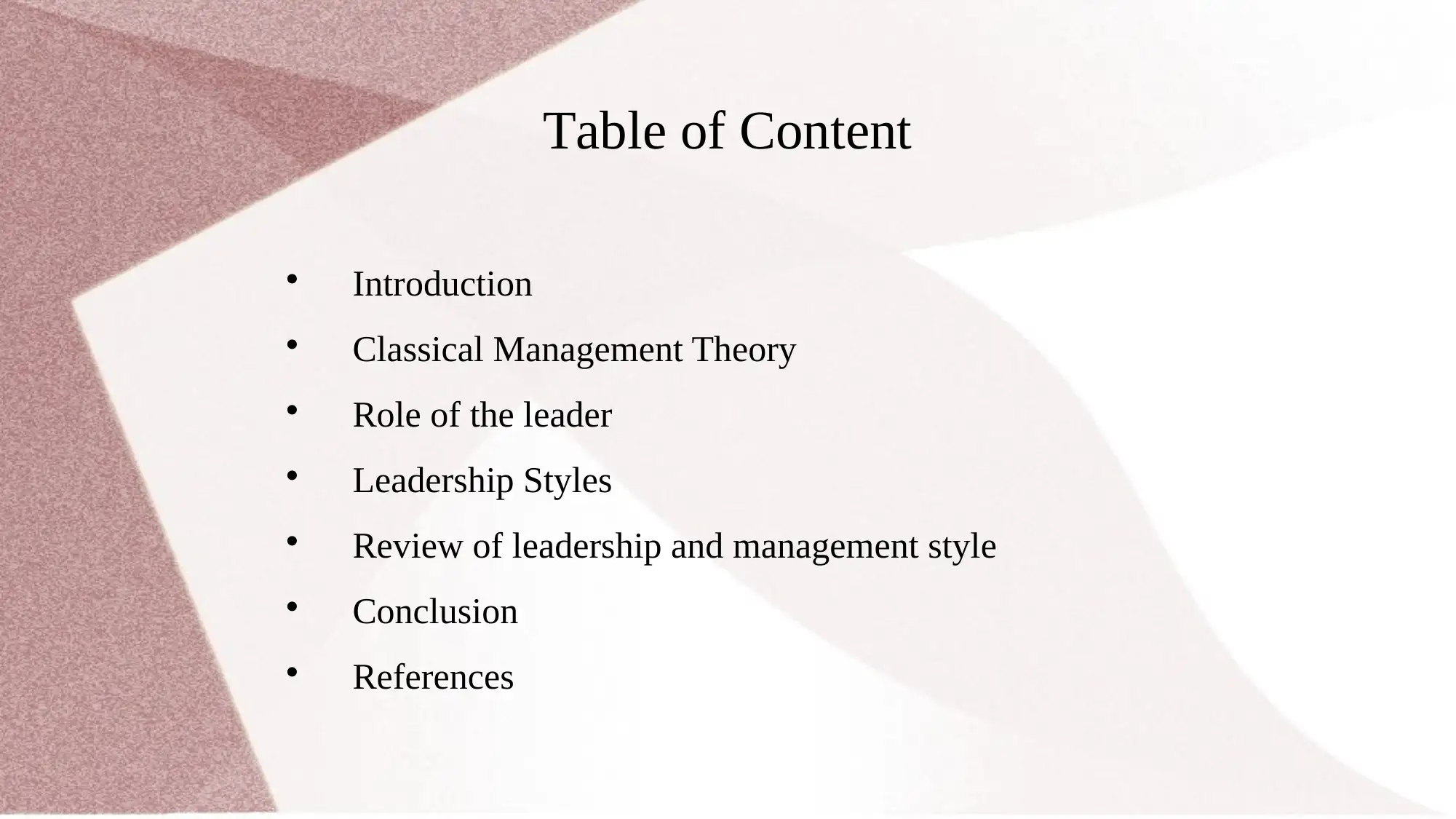
Table of Content
Introduction
Classical Management Theory
Role of the leader
Leadership Styles
Review of leadership and management style
Conclusion
References
Introduction
Classical Management Theory
Role of the leader
Leadership Styles
Review of leadership and management style
Conclusion
References
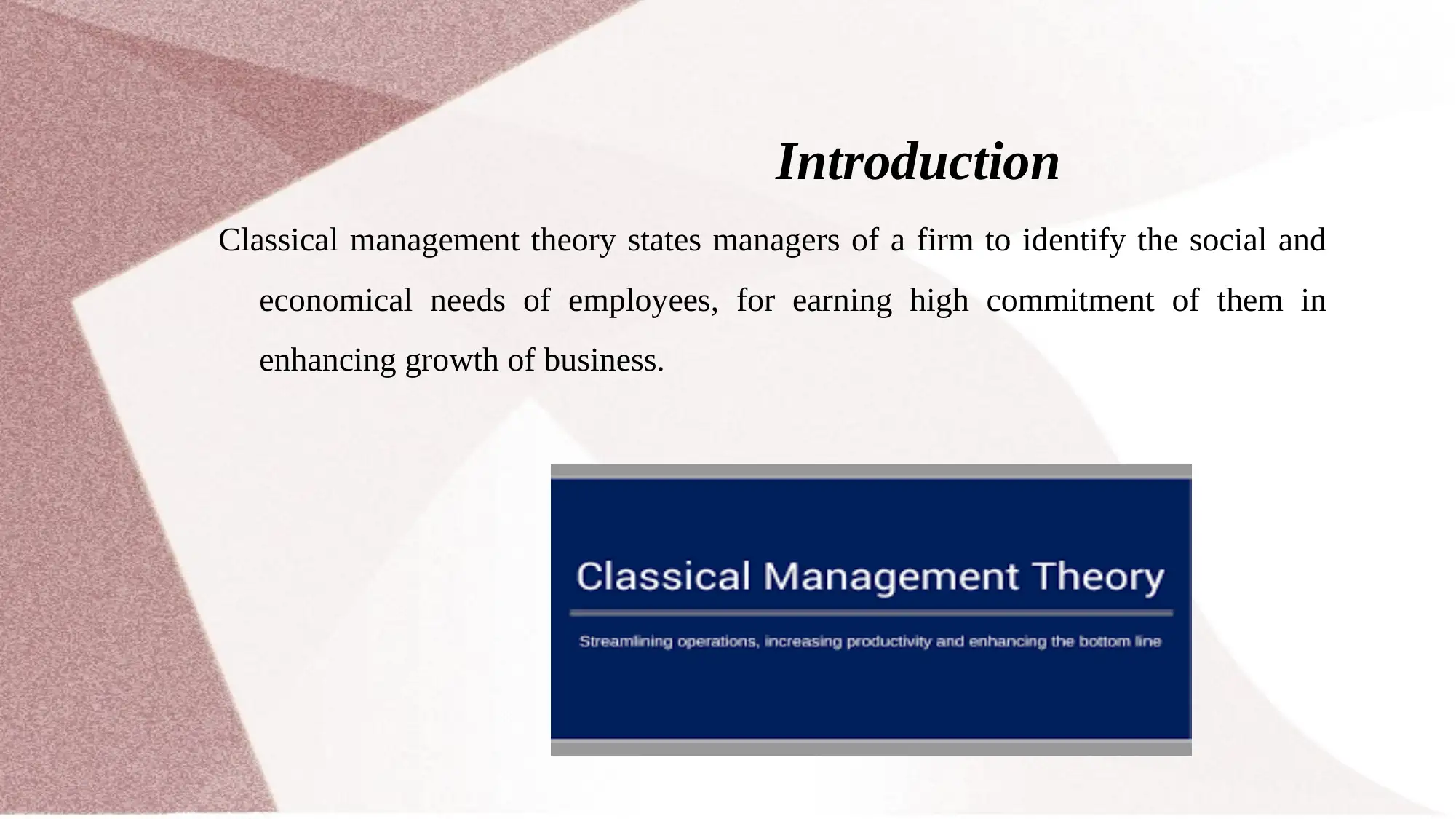
Introduction
Classical management theory states managers of a firm to identify the social and
economical needs of employees, for earning high commitment of them in
enhancing growth of business.
Classical management theory states managers of a firm to identify the social and
economical needs of employees, for earning high commitment of them in
enhancing growth of business.
⊘ This is a preview!⊘
Do you want full access?
Subscribe today to unlock all pages.

Trusted by 1+ million students worldwide
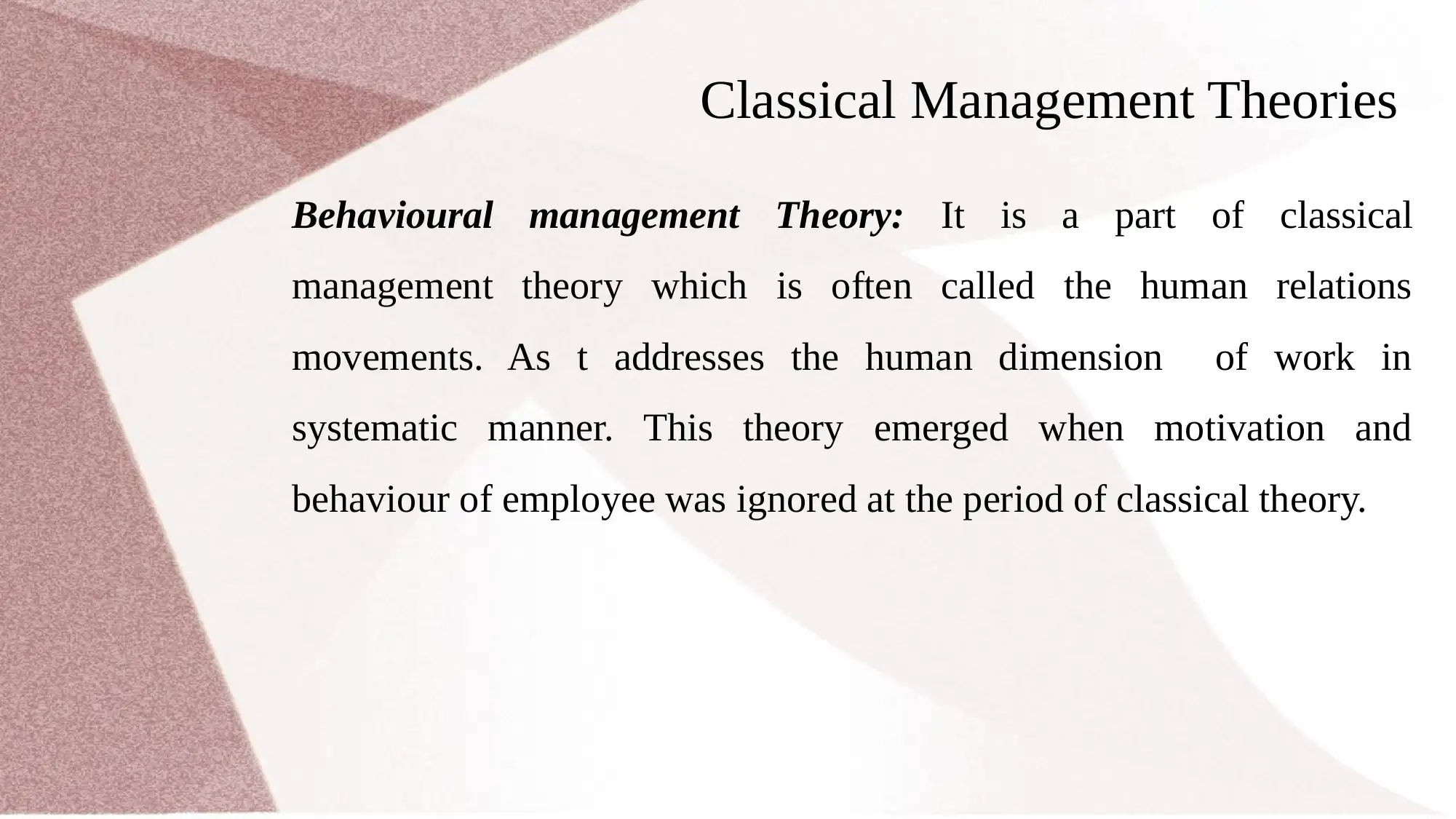
Classical Management Theories
Behavioural management Theory: It is a part of classical
management theory which is often called the human relations
movements. As t addresses the human dimension of work in
systematic manner. This theory emerged when motivation and
behaviour of employee was ignored at the period of classical theory.
Behavioural management Theory: It is a part of classical
management theory which is often called the human relations
movements. As t addresses the human dimension of work in
systematic manner. This theory emerged when motivation and
behaviour of employee was ignored at the period of classical theory.
Paraphrase This Document
Need a fresh take? Get an instant paraphrase of this document with our AI Paraphraser
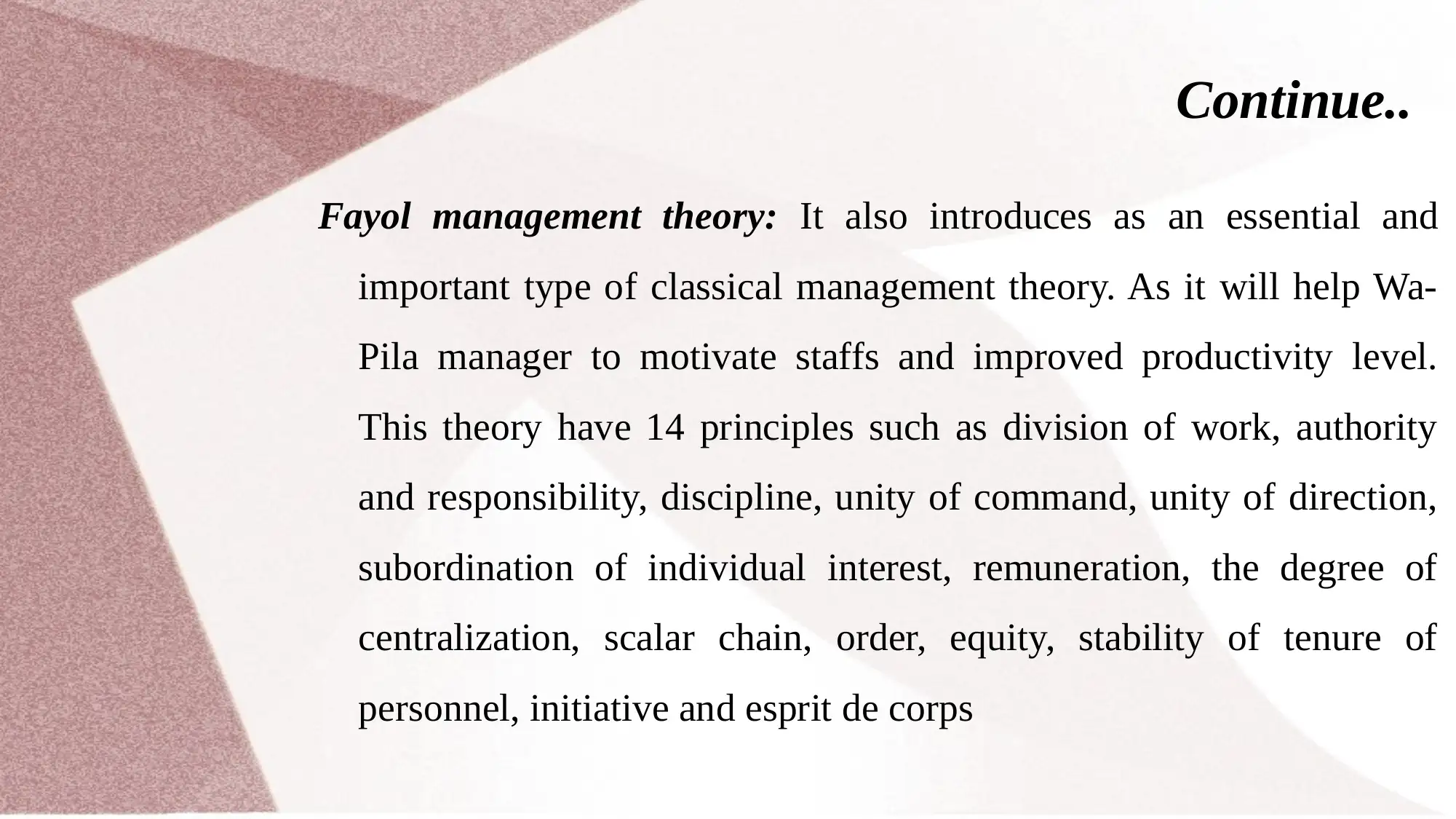
Continue..
Fayol management theory: It also introduces as an essential and
important type of classical management theory. As it will help Wa-
Pila manager to motivate staffs and improved productivity level.
This theory have 14 principles such as division of work, authority
and responsibility, discipline, unity of command, unity of direction,
subordination of individual interest, remuneration, the degree of
centralization, scalar chain, order, equity, stability of tenure of
personnel, initiative and esprit de corps
Fayol management theory: It also introduces as an essential and
important type of classical management theory. As it will help Wa-
Pila manager to motivate staffs and improved productivity level.
This theory have 14 principles such as division of work, authority
and responsibility, discipline, unity of command, unity of direction,
subordination of individual interest, remuneration, the degree of
centralization, scalar chain, order, equity, stability of tenure of
personnel, initiative and esprit de corps
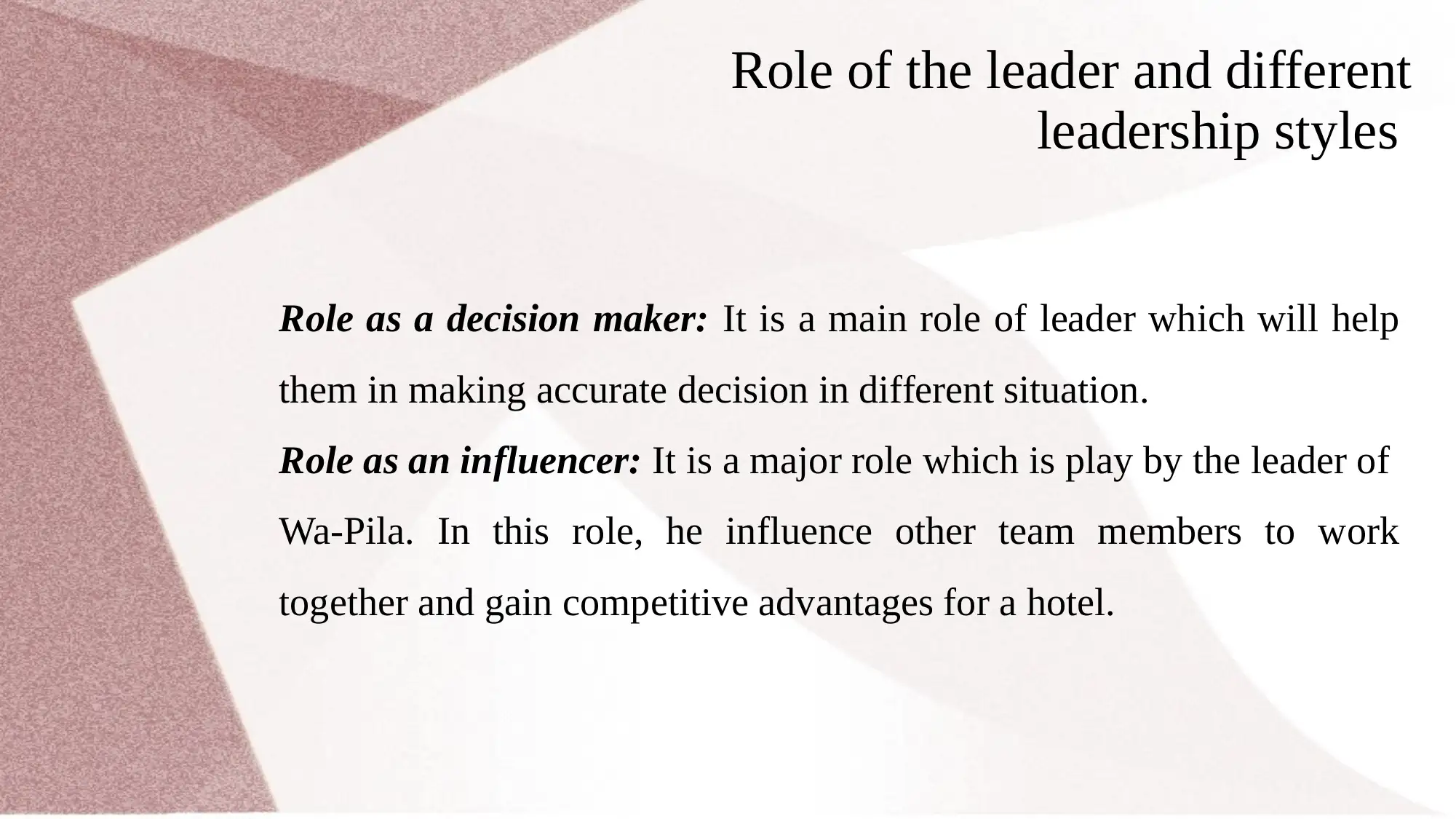
Role of the leader and different
leadership styles
Role as a decision maker: It is a main role of leader which will help
them in making accurate decision in different situation.
Role as an influencer: It is a major role which is play by the leader of
Wa-Pila. In this role, he influence other team members to work
together and gain competitive advantages for a hotel.
leadership styles
Role as a decision maker: It is a main role of leader which will help
them in making accurate decision in different situation.
Role as an influencer: It is a major role which is play by the leader of
Wa-Pila. In this role, he influence other team members to work
together and gain competitive advantages for a hotel.
⊘ This is a preview!⊘
Do you want full access?
Subscribe today to unlock all pages.

Trusted by 1+ million students worldwide
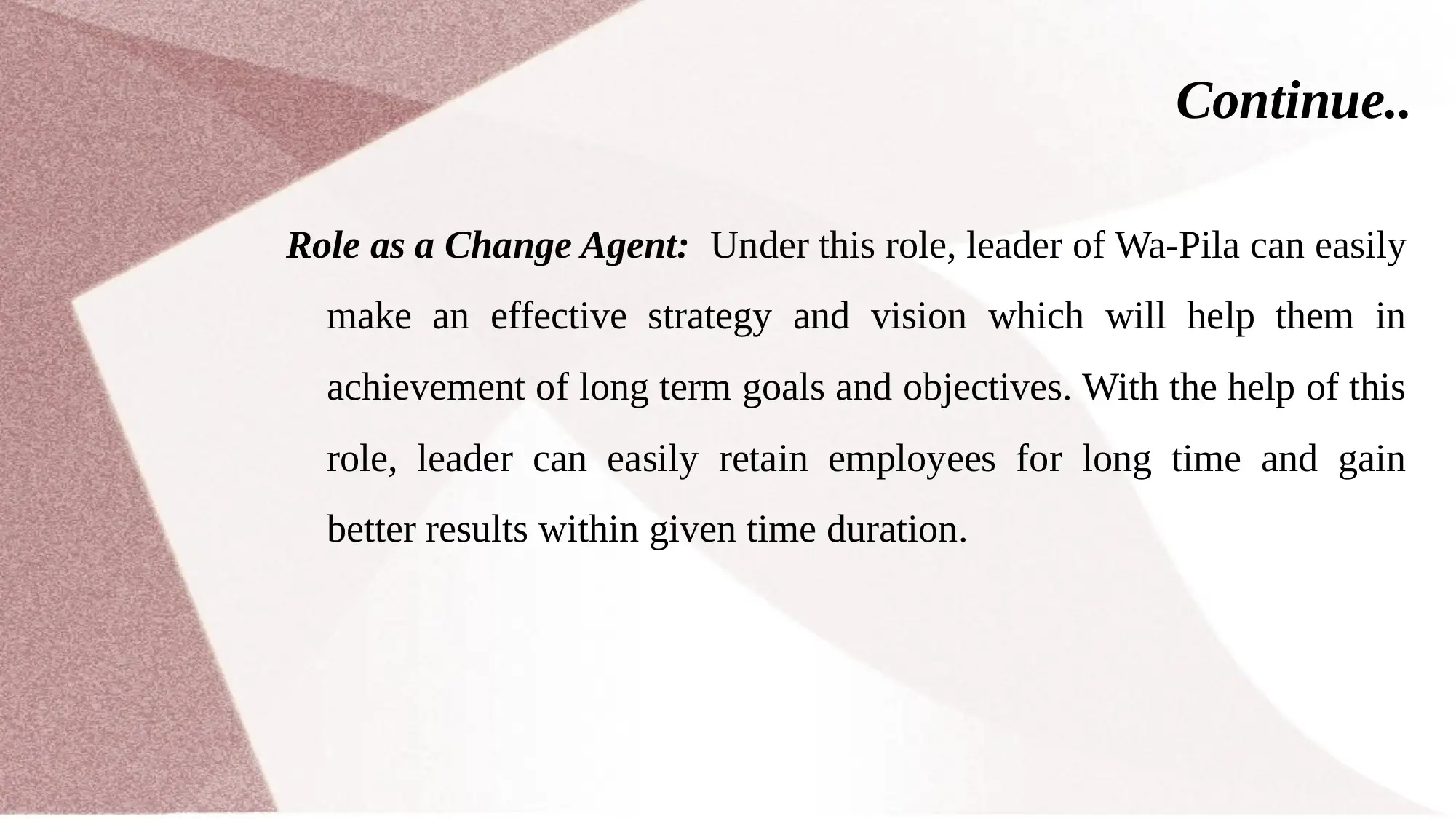
Continue..
Role as a Change Agent: Under this role, leader of Wa-Pila can easily
make an effective strategy and vision which will help them in
achievement of long term goals and objectives. With the help of this
role, leader can easily retain employees for long time and gain
better results within given time duration.
Role as a Change Agent: Under this role, leader of Wa-Pila can easily
make an effective strategy and vision which will help them in
achievement of long term goals and objectives. With the help of this
role, leader can easily retain employees for long time and gain
better results within given time duration.
Paraphrase This Document
Need a fresh take? Get an instant paraphrase of this document with our AI Paraphraser
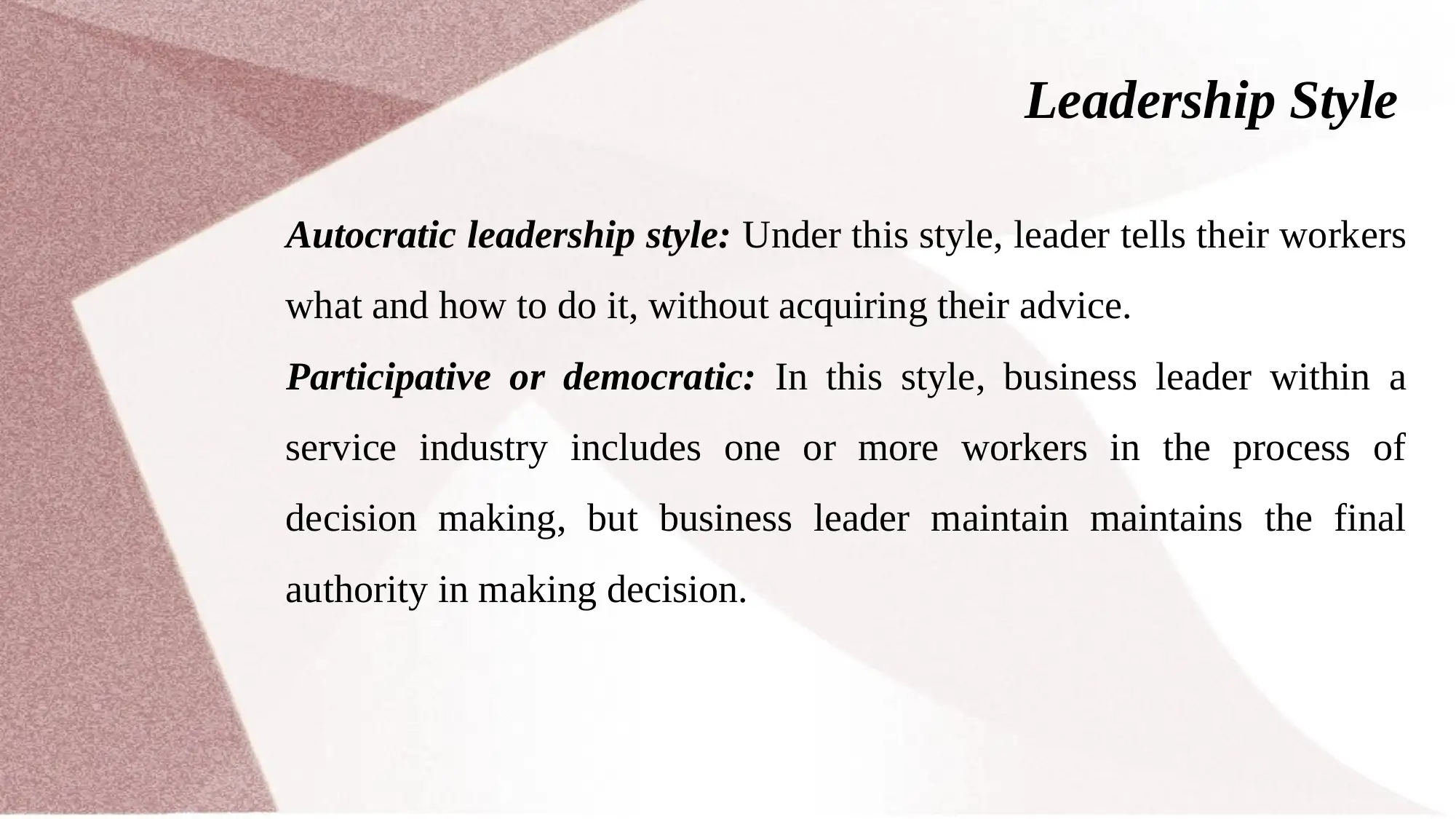
Leadership Style
Autocratic leadership style: Under this style, leader tells their workers
what and how to do it, without acquiring their advice.
Participative or democratic: In this style, business leader within a
service industry includes one or more workers in the process of
decision making, but business leader maintain maintains the final
authority in making decision.
Autocratic leadership style: Under this style, leader tells their workers
what and how to do it, without acquiring their advice.
Participative or democratic: In this style, business leader within a
service industry includes one or more workers in the process of
decision making, but business leader maintain maintains the final
authority in making decision.
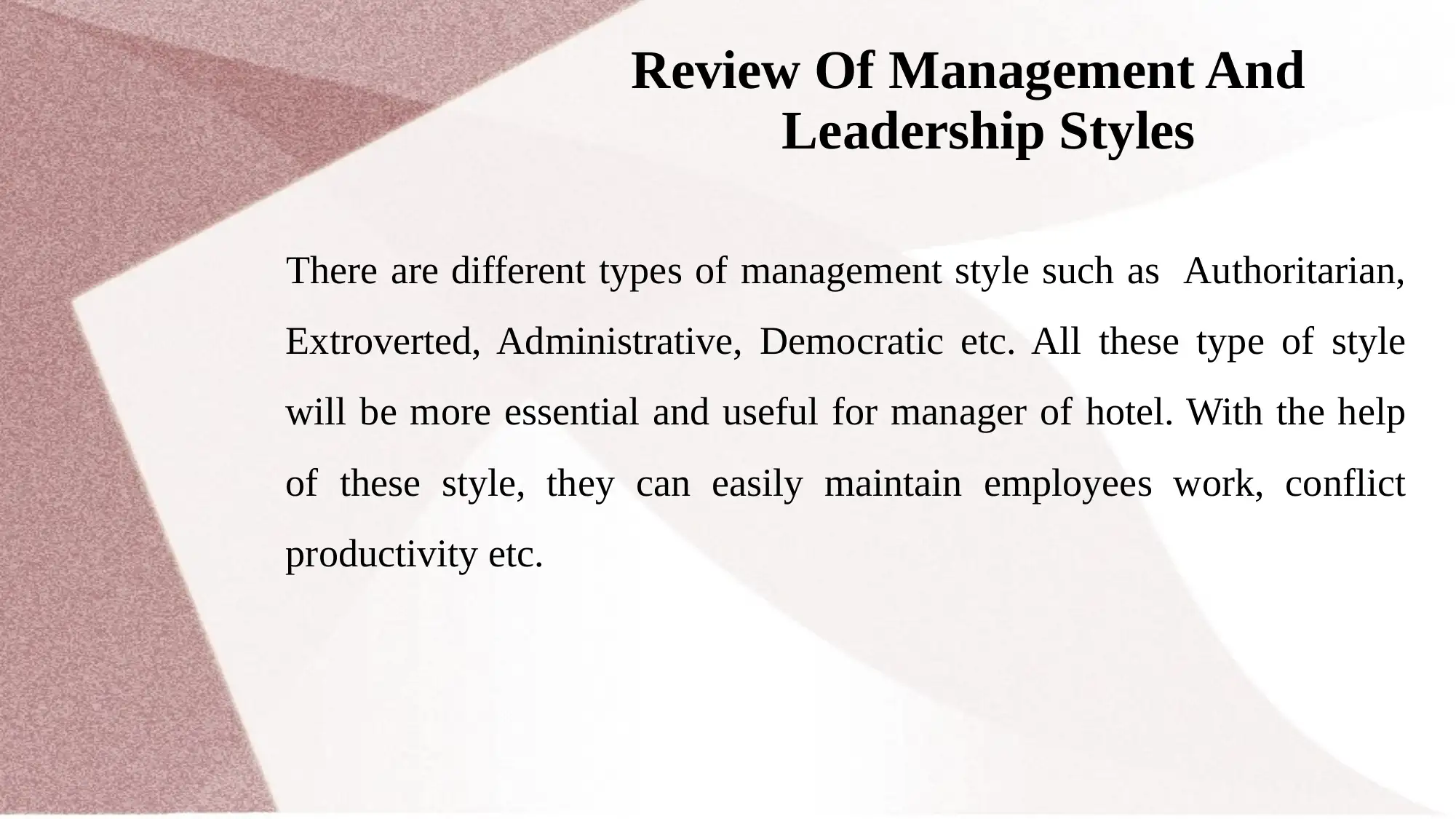
Review Of Management And
Leadership Styles
There are different types of management style such as Authoritarian,
Extroverted, Administrative, Democratic etc. All these type of style
will be more essential and useful for manager of hotel. With the help
of these style, they can easily maintain employees work, conflict
productivity etc.
Leadership Styles
There are different types of management style such as Authoritarian,
Extroverted, Administrative, Democratic etc. All these type of style
will be more essential and useful for manager of hotel. With the help
of these style, they can easily maintain employees work, conflict
productivity etc.
⊘ This is a preview!⊘
Do you want full access?
Subscribe today to unlock all pages.

Trusted by 1+ million students worldwide
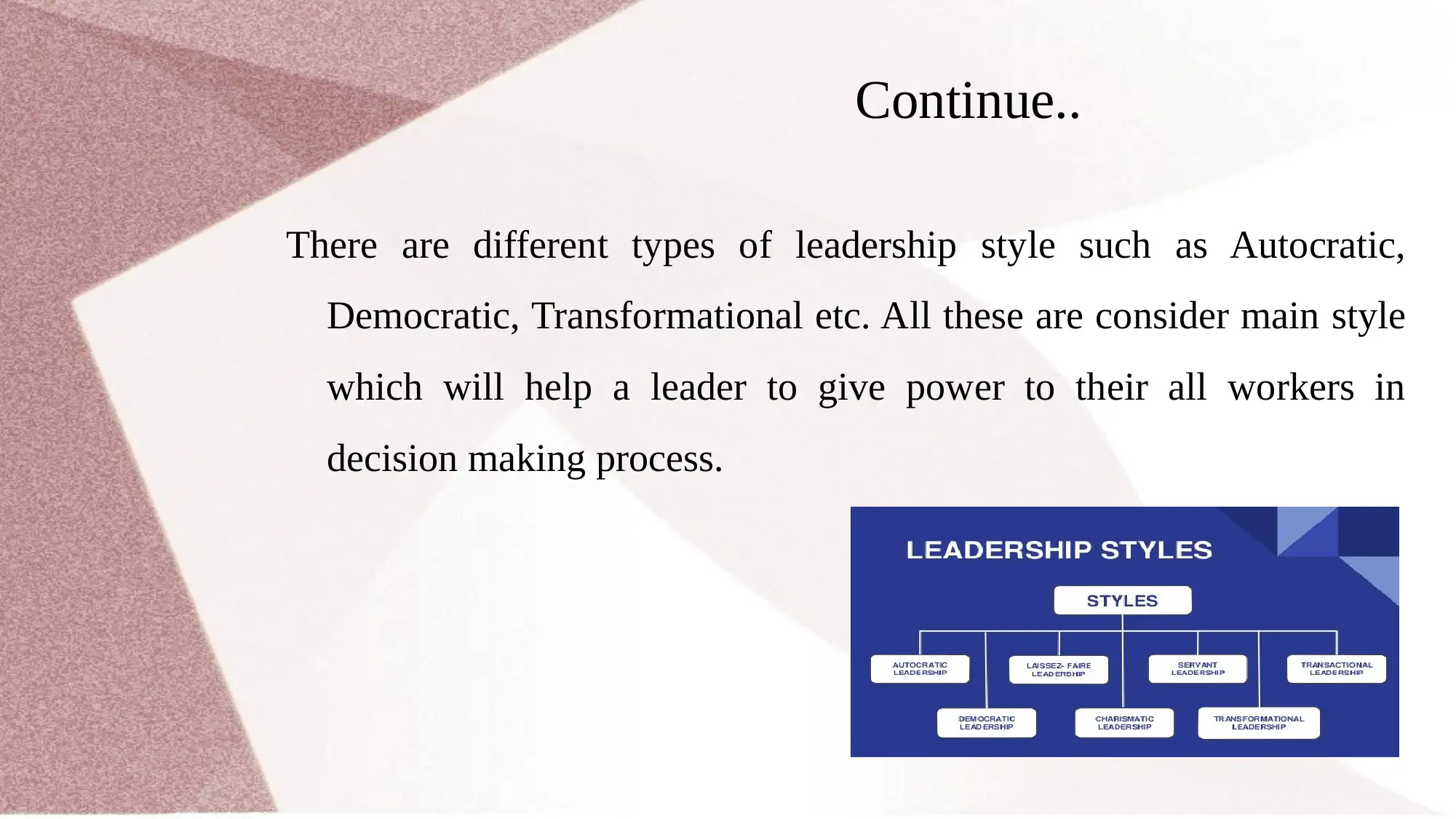
Continue..
There are different types of leadership style such as Autocratic,
Democratic, Transformational etc. All these are consider main style
which will help a leader to give power to their all workers in
decision making process.
There are different types of leadership style such as Autocratic,
Democratic, Transformational etc. All these are consider main style
which will help a leader to give power to their all workers in
decision making process.
Paraphrase This Document
Need a fresh take? Get an instant paraphrase of this document with our AI Paraphraser
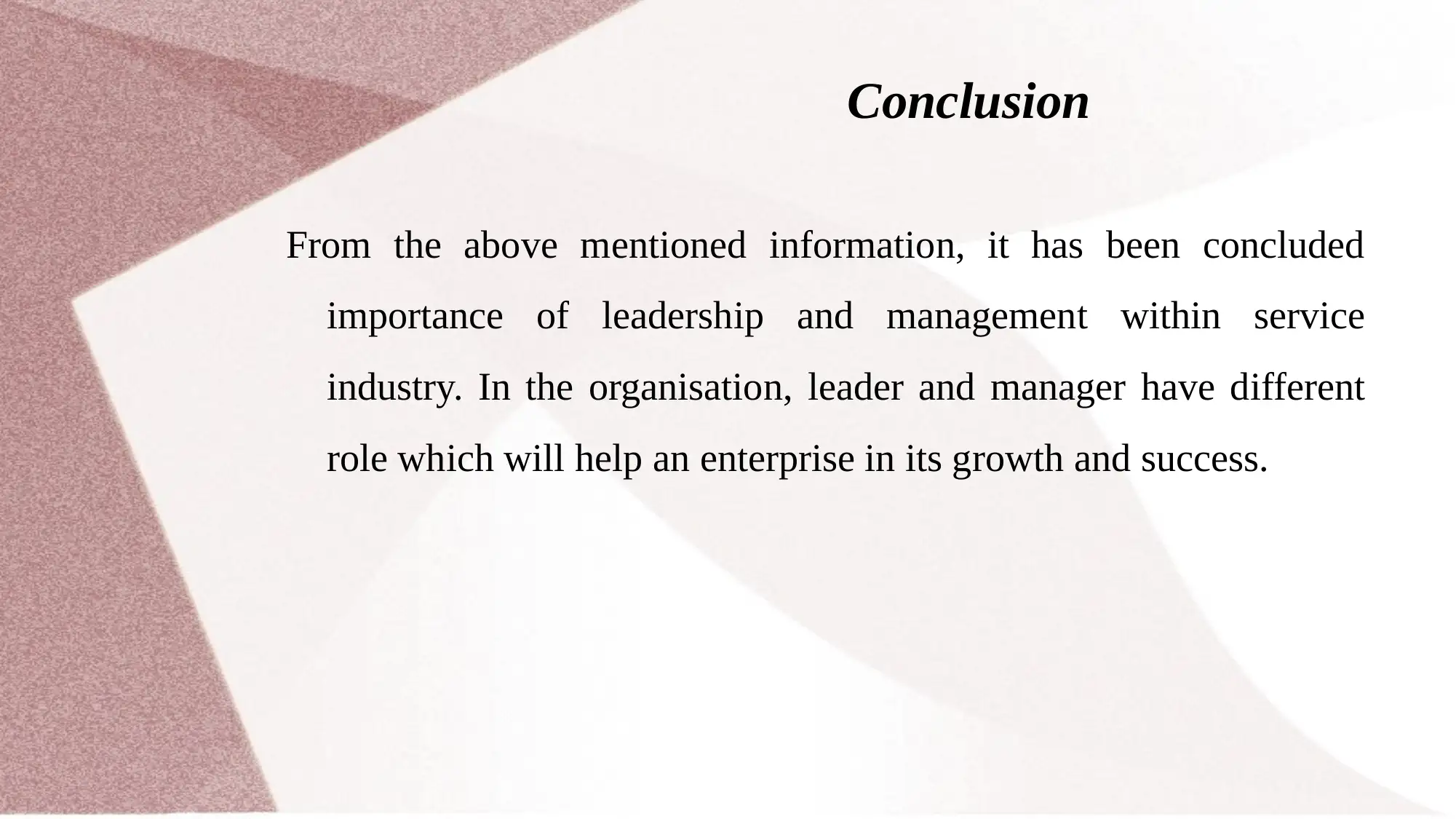
Conclusion
From the above mentioned information, it has been concluded
importance of leadership and management within service
industry. In the organisation, leader and manager have different
role which will help an enterprise in its growth and success.
From the above mentioned information, it has been concluded
importance of leadership and management within service
industry. In the organisation, leader and manager have different
role which will help an enterprise in its growth and success.
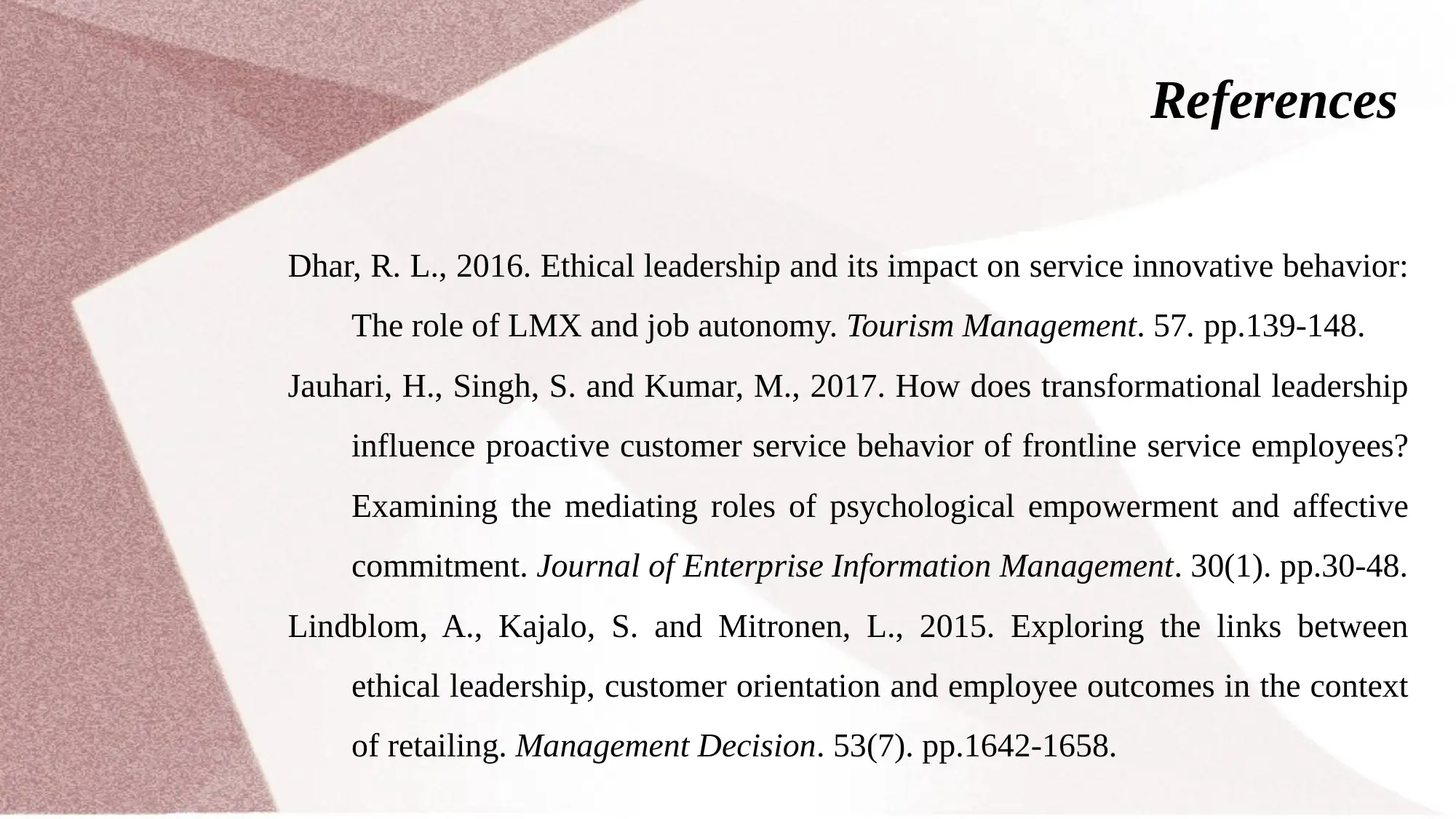
References
Dhar, R. L., 2016. Ethical leadership and its impact on service innovative behavior:
The role of LMX and job autonomy. Tourism Management. 57. pp.139-148.
Jauhari, H., Singh, S. and Kumar, M., 2017. How does transformational leadership
influence proactive customer service behavior of frontline service employees?
Examining the mediating roles of psychological empowerment and affective
commitment. Journal of Enterprise Information Management. 30(1). pp.30-48.
Lindblom, A., Kajalo, S. and Mitronen, L., 2015. Exploring the links between
ethical leadership, customer orientation and employee outcomes in the context
of retailing. Management Decision. 53(7). pp.1642-1658.
Dhar, R. L., 2016. Ethical leadership and its impact on service innovative behavior:
The role of LMX and job autonomy. Tourism Management. 57. pp.139-148.
Jauhari, H., Singh, S. and Kumar, M., 2017. How does transformational leadership
influence proactive customer service behavior of frontline service employees?
Examining the mediating roles of psychological empowerment and affective
commitment. Journal of Enterprise Information Management. 30(1). pp.30-48.
Lindblom, A., Kajalo, S. and Mitronen, L., 2015. Exploring the links between
ethical leadership, customer orientation and employee outcomes in the context
of retailing. Management Decision. 53(7). pp.1642-1658.
⊘ This is a preview!⊘
Do you want full access?
Subscribe today to unlock all pages.

Trusted by 1+ million students worldwide
1 out of 13
Related Documents
Your All-in-One AI-Powered Toolkit for Academic Success.
+13062052269
info@desklib.com
Available 24*7 on WhatsApp / Email
![[object Object]](/_next/static/media/star-bottom.7253800d.svg)
Unlock your academic potential
Copyright © 2020–2026 A2Z Services. All Rights Reserved. Developed and managed by ZUCOL.





